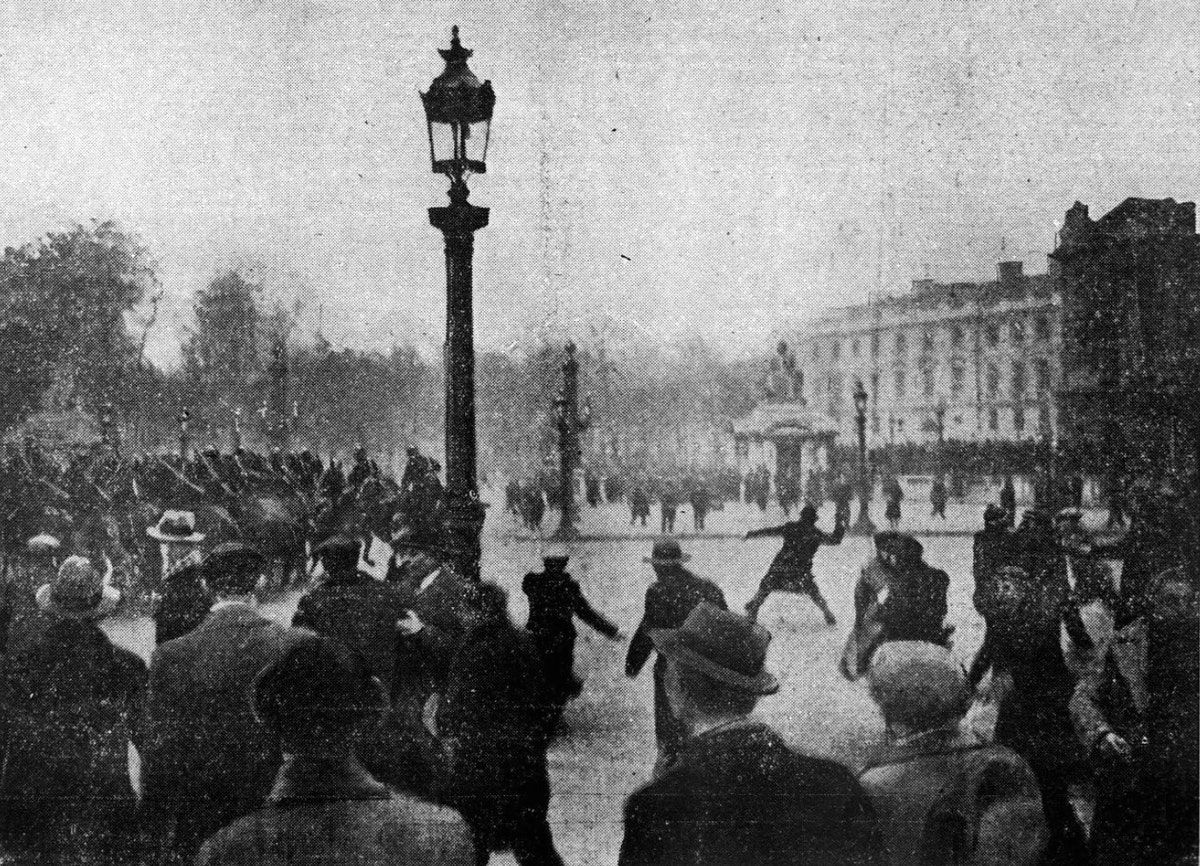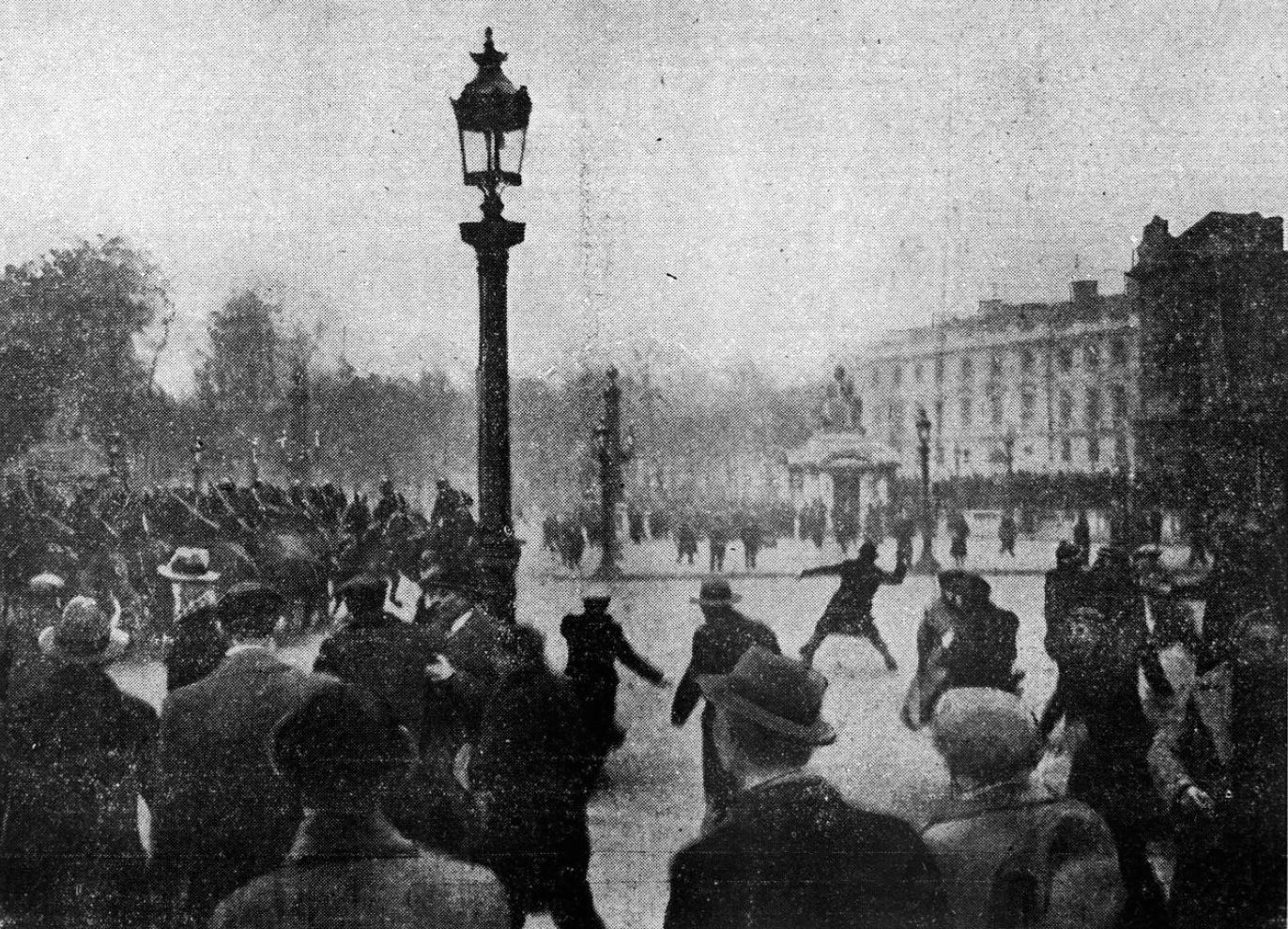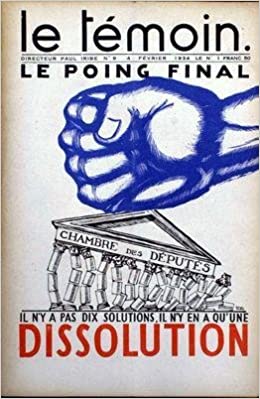
America is living through our past. Could it also be our future?
From pre-war Paris to today's Washington D.C., an eerie echo
For weeks right-wing media had been whipping up middle class fears. The country had been mired in economic crisis, and a gridlocked government was powerless to help. One corruption scandal after another made clear the ruling class had other preoccupations anyway. Cabinet meetings had become a game of musical chairs. Parliamentary democracy was no longer serving the people, some said. The radical left in the capital was removing good patriots from their rightful office and turning the country over to foreigners. The nation in peril needed more authoritative leadership to drain the swamp and restore moral order.
Nationalist leagues and veterans’ associations rallied their members. Posters were put up in the night; newspapers echoed the calls. On the 6th, as a new cabinet was scheduled to receive the assent of congressmen, patriots should assemble in the streets. Their rallying call: “Down with the thieves.”
Nationalists and royalists, antisemites and xenophobes, conspiracists, militias and confused middle-class dads, even a handful of communists, converged on the Place de la Concorde, where the guillotine had once baptized the Republic in blood. Just there, across a bridge on the Seine, stood the National Assembly. The rioters had stones to throw and razor blades at the end of their walking sticks to cut down horses from under the officers. They were met with too few policemen who overwhelmed opened fire. Fifteen people died, more than 2,000 were wounded. The National Assembly was safe, the Republic gasping.
The events of February 6, 1934 in Paris carry strange echoes. An American reader asked me how the rest of the world saw the insurrection at the US Capitol two weeks ago. I can tell her at least to French people, it felt like opening our history books. As surely as I recognized our past, I wondered too: Are we looking at our future?

When American democracy falters, the discourse in Europe isn’t always above schadenfreude. That’s what you get for throwing around the words “leader of the free world” so lightly. But this time, America’s shame sent a chill across the Atlantic. Its rioters may have carried a different flag, but we recognized them. The dark passions that brought them to the US Capitol exist here too. Misinformation, inequality, racism, we have it. Opportunistic politicians, too. Q-Anon is making inroads and the right is constantly nibbling at that Overton window. The United Kingdom has teared itself apart over Brexit, Emmanuel Macron has obliterated the moderate opposition and Angela Merkel, the moral center of the European Union, is retiring.
If American exceptionalism was a veil over our eyes, so too must be French exceptionalism and British exceptionalism. And the stories every nation has told itself as it mastered, it thought, liberal democracy.
For four years, the Trump presidency offered convenient cover. We didn’t have to truly look at ourselves; “not as bad as America” was an easy out. We’re racist, but not as racist as America. Inequalities are deepening, but not as deep as in America. Healthcare, education, infrastructure are declining, but not as much as in America. Our CO2 emissions are too high, but not as high as America’s. Our pandemic response is bad… but not as bad as America’s. If even they can’t figure it out, surely we get a pass, right? The excuse no longer stands. The events of January 6 prove that “not as bad as America” can still be a long way from where we — and she — should be.

The February 1934 riots jolted the French left out of its complacency. “Fascism will not pass,” its leaders proclaimed. In 1936 a united left formed the Front Populaire government, whose legacy is still the stuff of progressive mythmaking. It passed the 40-hour work week and the first national paid leave mandate, miners’ pensions, unemployment insurance and collective bargaining. But unity didn’t last two years. The partisan divide had become unbridgeable. Some militants were so entrenched even the organizations that had armed them could no longer reach them. The embers of 1934 smoldered and after six years, the Republic finally went up in flames. On second try the coup worked.
“Politics doesn’t have to be a raging fire,” President Joe Biden told us today. Our history teaches us — we better all get to work now to douse the flames.
A propos
- As I was drafting the above, James McAuley published a broader comparison of US events to the whole of the French Third Republic. Well worth a read for added context. [The Atlantic]
- I’ve joined the cool kids on Clubhouse. On Thursday, Jan 28 at 10am PT (6pm GMT), I’ll be speaking with friends and strangers about “our work from anywhere future.” It’s like a casual conference panel but in audio… I think. Let’s find out together. I have a few invitations left; hit me up if you need one. [Clubhouse]
- I’m working on the next season of the podcast. All guest recommendations are welcome. And if you want to share your own story of life as a global citizen, just hit reply and let’s chat.
📬 Subscribe to the newsletter | ⭐️ Support on Patreon | 🍎 Listen on Apple Podcasts | 🎧 Listen on Spotify | 📺 Watch on YouTube | 🌍 borderlinepod.com
Hey, you read to the end!
Don’t miss future articles like this one; let me into your inbox.







